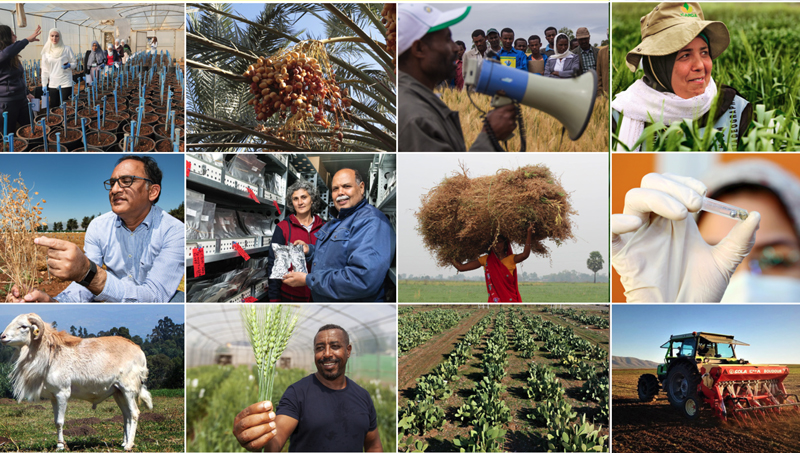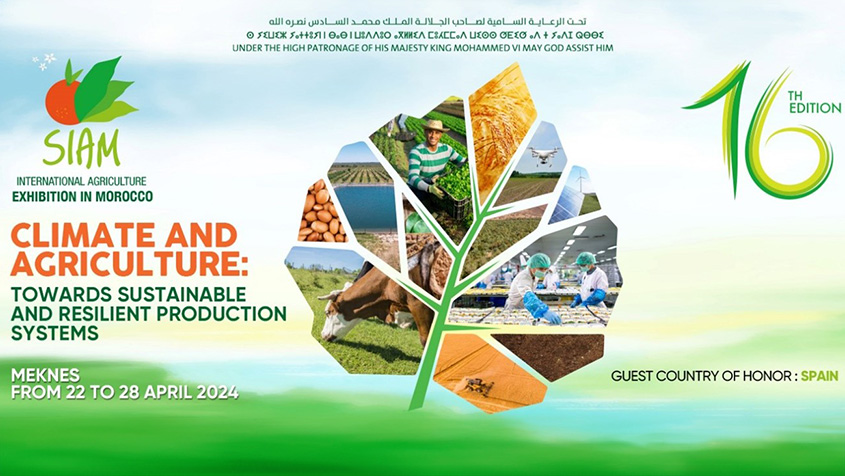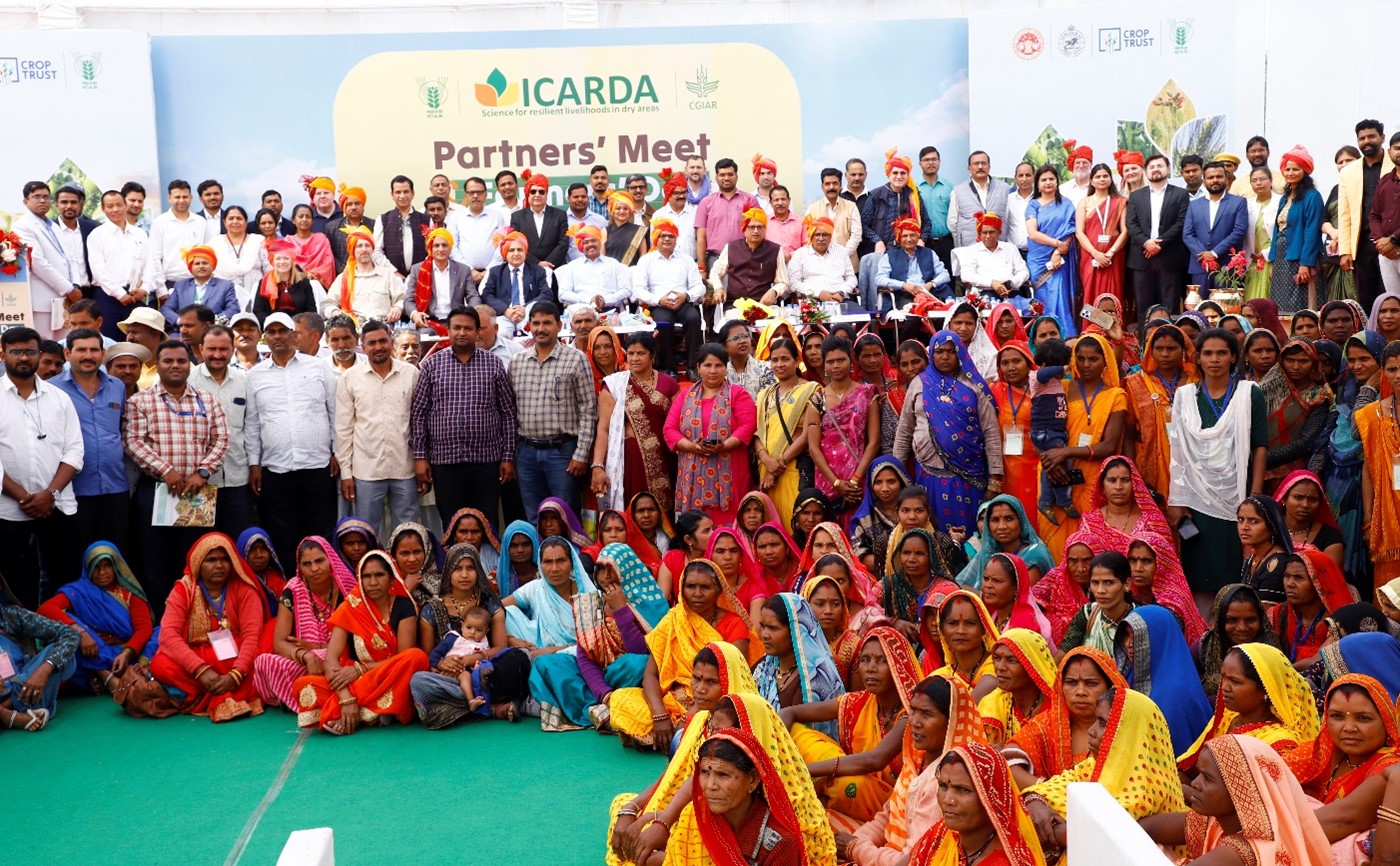ICARDA-CGIAR Desert Farming Innovation Sprint announced at the AIM for Climate Summit
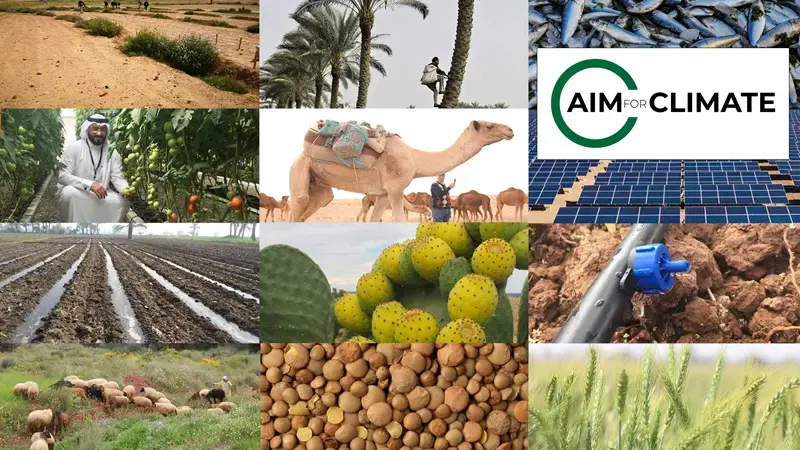
The Agriculture Innovation Mission for Climate AIM for Climate / AIM4C), a joint initiative between the USA and UAE, has announced CGIAR-ICARDA's groundbreaking Integrated Desert Farming Innovation Program (IDFIP) as an Innovation Sprint. The IDFIP aims to transform desert agriculture across the global drylands into highly productive food systems and, with the support of the Gulf Cooperation Council (GCC) countries, it is anticipated this new way forward will be scaled to other drylands ecosystems globally.
-----------------------------
Washington DC, 8 May 2023: AIM4C has announced the pioneering CGIAR-ICARDA "Integrated Desert Farming Innovation Program (IDFIP)" as one of its Innovation Sprints, a commitment to increase self-aggregated funding to support climate-smart agriculture and resilient food systems transformation in global drylands and especially in the drylands of North Africa, Central, and West Asia and the Middle East. The announcement was made during the AIM for Climate Summit in Washington DC, hosted by The United States government and supported by the Foundation for Food & Agriculture Research (FFAR). The project aims to leverage an increased level of investment from $7 million over a five-year period to $20 million by the end of 2025.
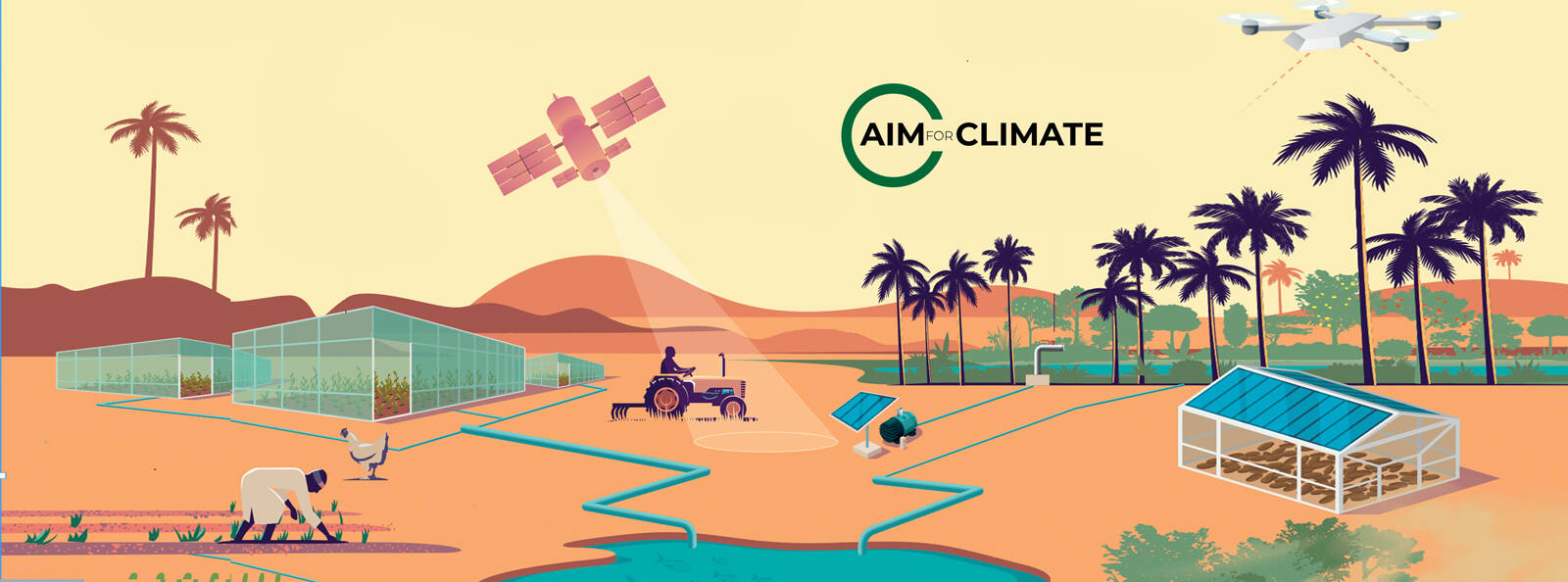
Transforming deserts into resilient and productive agricultural systems
The Integrated Desert Farming Innovation Program is a trailblazing ICARDA-led CGIAR initiative that realizes the potential of desert farming to boost agricultural productivity, generate jobs, and deliver food and water security in desert ecosystems. The program initially focuses on the Arabian Peninsula, where food production and agricultural livelihoods are severely threatened by climate change, resulting in dwindling water supplies, poor soils, expanding desertification, and increasing pests and plant disease. The program will act as a test case generating lessons and outcomes vital for scaling innovation packages to transform productive food systems beyond the Arabian Peninsula's borders, into North Africa and West Asia, and across global drylands.
Sharing knowledge for food systems transformation in GCC countries
Through its collaborative knowledge and capacity-sharing model, the IDFIP will deliver a wealth of new and existing agricultural innovations held by each country towards an integrated whole that will strengthen global research and generate dryland innovation at scale.
-
Significant water saving and reuse, with resilient and sustainable farming systems using renewable energy and climate-smart farming approaches.
-
Reduced food and feed imports thanks to increased local production of strategic staple crops.
-
Lucrative local and export markets for high-value crops and value-added desert farming products – boosting the small business sector and creating new jobs.
The IDFIP is a CGIAR Initiative and regional collaboration led by ICARDA and in partnership with the International Water Management Institute (IWMI), International Food Policy Research Institute (IFPRI), and WorldFish. Participants include
- The Cooperation Council for the Arab States of the Gulf, Secretariat General of the Gulf Cooperation Council (GCC)
- Ministry of Municipalities Affairs and Agriculture, Kingdom of Bahrain
- Public Authority for Agricultural Affairs and Fish Resources, State of Kuwait
- Ministry of Agriculture, Fisheries and Water Recourses, Saltant of Oman
- Ministry of Municipality, State of Qatar
- Ministry of Environment Water and Agriculture, Kingdom of Saudi Arabia
- Ministry of Climate Change and Environment - United Arab Emirates

